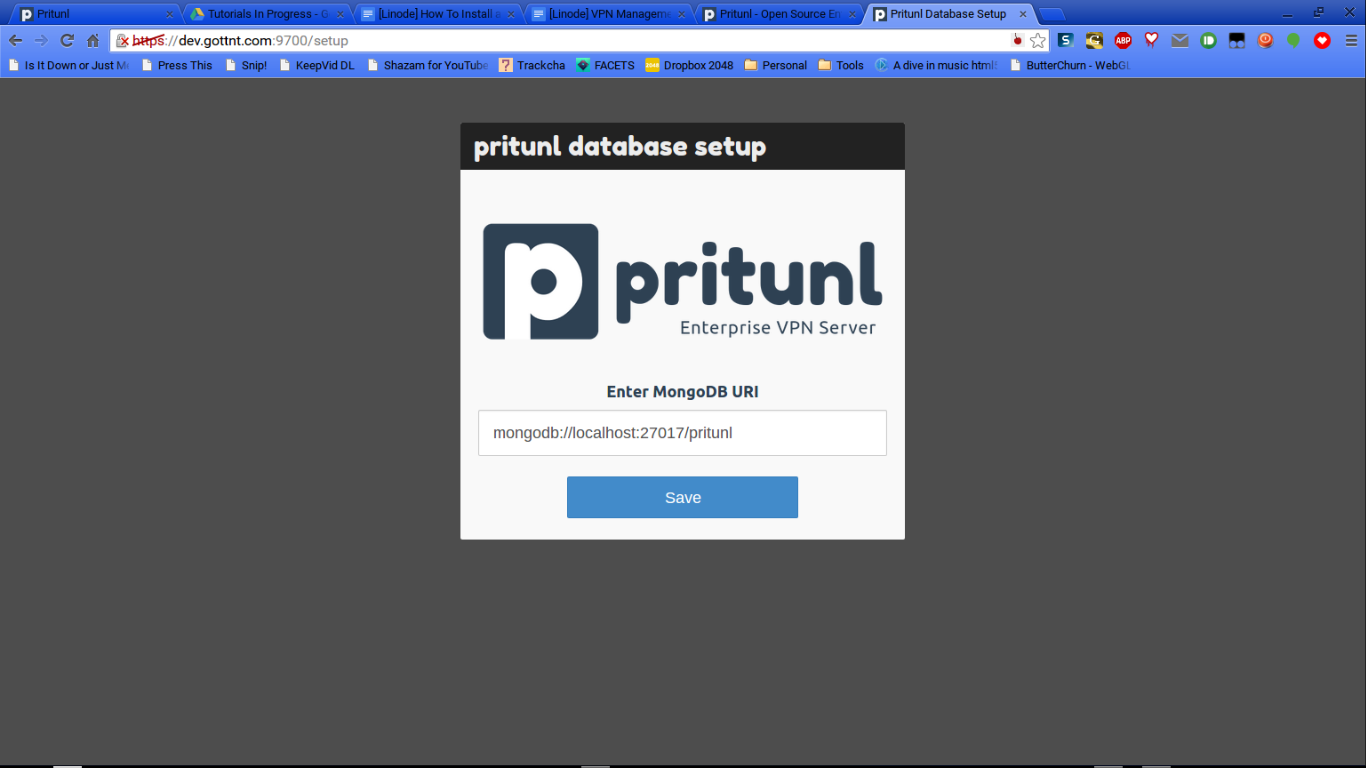

You can also verify the Pritunl listening port with the following command: ss -antpl | grep pritunl Jan 09 11:51:04 ubuntu2004 pritunl: from cryptography import x509 Jan 09 11:51:04 ubuntu2004 pritunl: /usr/lib/pritunl/lib/python2.7/site-packages/OpenSSL/crypto.py:12: CryptographyDeprecationWarning: > Jan 09 11:51:03 ubuntu2004 systemd: Started Pritunl Daemon. ?11487 /usr/lib/pritunl/bin/python /usr/lib/pritunl/bin/pritunl start Loaded: loaded (/etc/systemd/system/rvice disabled vendor preset: enabled)Īctive: active (running) since Sat 11:51:03 UTC 4s ago You should get the following output: ? rvice - Pritunl Daemon You can now verify the status of the Pritunl service with the following command: systemctl status pritunl When the installation is complete, start the Pritunl service and allow it to restart at system startup with the following command: systemctl start pritunl
#Pritunl setup install
Once the repository has been added, update the repository cache and install the Pritunl server with the following command: apt-get update -y
#Pritunl setup archive
Then add the Pritunl archive with the following command: echo "deb focal main" | tee /etc/apt//pritunl.list So you need to add GPG key and repository to your system.įirst add the GPG key with the following command: apt-key adv -keyserver hkp:// -recv E1Īpt-key adv -keyserver hkp:// -recv 7568D9BB55FF9E5287D586017AE645C0CF8E292A Pritunl is not available in the standard Ubuntu repository by default.

Once all the packages have been installed, you can proceed to the next step. Once all packages have been updated, install the other dependencies required by running the following command: apt-get install curl gnupg2 wget unzip -y You can update all packages by running the following command: apt-get update -y
#Pritunl setup how to
In this guide we will explain how to set up a Pritunl VPN server and client on the Ubuntu 20.04 server. It provides an official client package and supports all OpenVPN clients for most devices and platforms. It provides a simple and user-friendly web interface and has the capability to create a wide range of cloud VPN networks. For example the user profile may come from Active Directory with phone number sourced from another app and written back to Active Directory.Pritunl is an open source, simple and easy to use VPN server that lets you set up virtualization of your private networks over data centers within a minute. When the application is used as a profile master it is possible to define specific attributes to be sourced from another location and written back to the app. Allows Okta to use custom attributes you have configured in the application that were not included in the basic app schema. Import the user attribute schema from the application and reflect it in the Okta app user profile. Simplifies onboarding an app for Okta provisioning where the app already has groups configured. Link Okta groups to existing groups in the application. Groups can then be managed in Okta and changes are reflected in the application.

Push existing Okta groups and their memberships to the application. This feature is not required for all federated applications as user authentication takes place in Okta, however some apps still require a password. Push either the users Okta password or a randomly generated password to the app.

Accounts can be reactivated if the app is reassigned to a user in Okta.
#Pritunl setup full
The application can be defined as the source of truth for a full user profile or as the source of truth for specific attributes on a user profile.ĭeactivates a user's account in the app when it is unassigned in Okta or their Okta account is deactivated. Future attribute changes made to the Okta user profile will automatically overwrite the corresponding attribute value in the app. Okta updates a user's attributes in the app when the app is assigned. Creates or links a user in the application when assigning the app to a user in Okta.


 0 kommentar(er)
0 kommentar(er)
